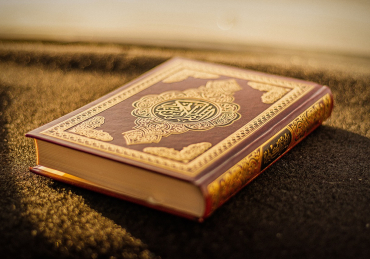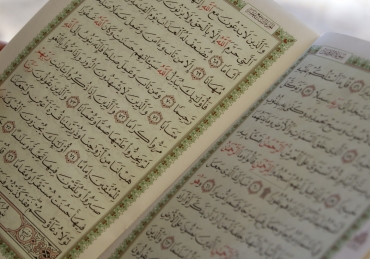Recitation of 20 Sūrahs in Tahajjud Ṣalāh and reciting Qurʾān slowly
Question
I recently heard that there is a narration that suggests that the Prophet ﷺ would recite 20 chapters of the Qurʾān in Tahajjud Ṣalāḥ. Is this true?
Answer
بسم الله الرحمن الرحیم
The ḥadīths suggest that the Prophet ﷺ would recite in Tahajjud Ṣalāh from different parts of the Qurʾān. For example, ʿAbd Allah ibn ʿAbbās (d. 68/687-8) (may Allah be pleased with him) narrates that on one occasion, the Prophet ﷺ repeated the final ten verses of Sūrah Āl ʿImrān in the eight Rakʿah of Tahajjud Ṣalāh (Ṣaḥīḥ Muslim, 763). The general practice of the Prophet ﷺ was to perform eight Rakʿah of Tahajjud Ṣalāh and recite in each Rakʿah a portion of the Qurʾān equivalent to Sūrah Muzzammil (Sunan Abū Dāwūd, 1365), which is roughly two and half pages.
In relation to your specific query, the narration has been transmitted in Ṣaḥīḥ al-Bukhārī (775), Ṣaḥīḥ Muslim (822) and other ḥadīth books. According to the narration of Ṣaḥīḥ Muslim, on one occasion Nahīk ibn Sinān [n.d.] came to ʿAbd Allah ibn Masʿūd (d. 32/652-3) (may Allah be pleased with him) and said to him, O Abū ʿAbd al-Raḥmān, how do you recite the following verse [Qurʾān, 47: 15], with an alif or yā?
مِنْ مَاءٍ غَيْرِ آسِنٍ or مِنْ مَاءٍ غَيْرِ يَاسِنٍ
ʿAbd Allah ibn Masʿūd replied, “Have you memorised the whole Qurʾān except this?” He replied, “Indeed, I recite all the Mufaṣṣal [chapters] in one Rakʿah.” ʿAbd Allah ibn Masʿūd replied, “[Do you recite it] as quickly as one recites poetry? Verily there are people who recite the Qurʾān, but it does not go down beyond their collar bones. The Qurʾān is beneficial if it enters the heart and is embedded in it. The best actions of Ṣalāh are bowing and prostration. Verily, I am aware of the similar chapters which the Prophet ﷺ would combine, two in each Rakʿah.”
The narrations of Ṣaḥīḥ al-Bukhārī and Ṣaḥīḥ Muslim do not mention outline the twenty chapters. However, the detail of the 20 chapters has been transmitted in an authentic ḥadīth in Sunan Abū Dāwūd (1396) and Musnad Aḥmad (3958, 3968). The Prophet ﷺ would recite two similar chapters in each Rakʿah, he would recite:
- Sūrah al-Najm (53) and Sūrah al-Raḥmān (55) in one Rakʿah;
- Sūrah Iqtarabat (54) and Sūrah al-Ḥāqqah (69) in one Rakʿah;
- Sūrah al-Ṭūr (52) and Sūrah al-Dhāriyāt (51) in one Rakʿah;
- Sūrah al-Waqiʿah (56) and Sūrah Nūn (68) in one Rakʿah;
- Sūrah al-Maʿārij (70) and Sūrah al-Naziʿāt (79) in one Rakʿah;
- Sūrah al-Muṭaffifīn (83) and Sūrah ʿAbasa (80) in one Rakʿah;
- Sūrah al-Muddaththir (74) and Sūrah al-Muzzammil (73) in one Rakʿah;
- Sūrah al-Insān (76) and Sūrah al-Qiyāmah (75) in one Rakʿah;
- Sūrah al-Nabaʾ (78) and Sūrah al-Mursalāt (77) in one Rakʿah; and
- Sūrah al-Dukhān (44) and Sūrah al-Takwīr (81) in one Rakʿah.
Imam Abū Dāwūd (d. 275/889) explains that this is in accordance with the order of the Muṣḥaf of ʿAbd Allah ibn Masʿūd (may Allah be pleased with him). The similarity of the chapters mentioned by ʿAbd Allah ibn Masʿūd either relates to the similarity in length or similarity in the content and messages contained within the chapters. The letter is the preferred view of the scholars (Fatḥ al-Bārī, 2: 259; Badhl al-Majhūd, 5: 327).
We also learn from this and other narrations that the Qurʾān should be recited slowly without haste, ensuring each letter is pronounced and each word is understood. Each letter of the Qurʾān should be given its due and recited clearly, for each letter counts as ten good deeds (Sunan al-Tirmidhī, 2910). Mawlānā Rashīd Aḥmad Gangohī (d. 1323/1905) explains that it is undoubtedly preferable to recite less from the Qurʾān but to recite it with the correct pronunciation (al-Kawkab al-Durrī, 1: 474). ʿAllāmah Shabbīr Aḥmad ʿUthmānī (d. 1369/1949) explains that according to the majority of scholars it is disliked to recite the Qurʾān very quickly and it is encouraged to recite the Qurʾān slowly and with contemplation (Fatḥ al-Mulhim, 4: 255). Ḥāfiẓ Ibn Ḥajar al-ʿAsqalānī (d. 852/1449) has expressed a similar position and adds that recitation with contemplation has greater reward (Fatḥ al-Bārī, 9: 89). Imam Muḥammad ibn al-Ḥasan al-Shaybānī (d. 189/805) writes, “A reciter should understand what he recites, and this is the position of Imam Abū Ḥanīfah” (Kitāb al-Āthār, 268).
Allah knows best
Yusuf Shabbir
1 Jumadā al-Ūlā 1436 / 19 February 2015
Checked and approved by: Mufti Shabbir Ahmed Sahib
Reciting extremely fast in Tarāwīḥ Ṣalāh
Ḥakīm al-Ummah Mawlānā Ashraf ʿAlī Thānawī (d. 1362/1943) writes in Iṣlāḥ al-Rusūm (p. 148):
“Finishing the Qurʾān quickly or to finish the Qurʾān many times is considered something to be proud of, and to achieve this purpose, they read very fast so that the letters are not pronounced properly. Tartīl (which includes reading with tajwīd) has been declared compulsory in the Noble Qurʾān and to discard this compulsory act is a means of sin, especially when it is for the sake of showing off and pride in which case the sin is multiplied.”







